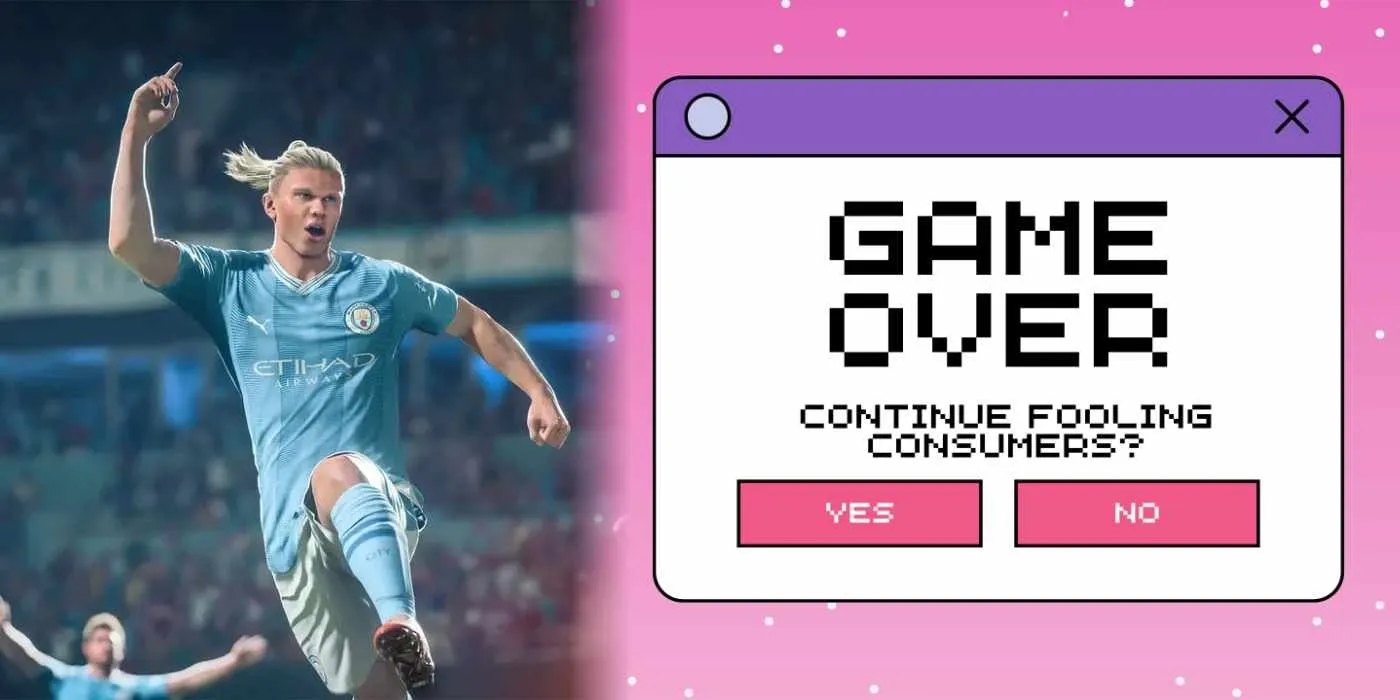Earlier today, we got a statement from the BEUC (the Bureau Européen des Unions de Consommateurs), a group of 44 independent consumer organizations from 31 countries. It calls out the predatory spending practices of AAA games, focusing mainly on virtual currencies and how it obstructs the real amount of money being spent by players, especially young ones. The organization has already filed a complaint to EU authorities and asks regulators to take action.
This is only the latest effort in combating various predatory and anti-consumer practices in the video game industry, alongside the Stop Killing Video Games petition from about a month ago (sign it if you haven't already, by the way). There's no guarantee anything will come of BEUC's actions, but the fact the EU is being made aware of these issues is a step in the right direction. You can read the full statement down below.
Quote From BEUC Today, BEUC and 22 member organisations* from 17 countries submitted a complaint to EU authorities on the unfair practices of leading video game companies, behind games such as Fortnite, EA Sports FC 24, Minecraft and Clash of Clans. Our analysis concludes that traders breach EU consumer protection laws. We call on authorities to ensure that traders play by the rules and provide consumers with safe gaming environments.
BEUC’s alert to the European Commission and the European Network of Consumer Authorities (CPC-Network) exposes how the video game industry maximises consumers’ spending by using premium in-game currencies. Specifically, BEUC and its members have identified that:
- Consumers cannot see the real cost of digital items, leading to overspending: the lack of price transparency of premium in-game currencies and the need to buy extra currency in bundles pushes consumers to spend more. In-game purchases should always be displayed in real money (e.g.: Euro), or at least they should display the equivalence in real-world currency.
- Companies’ claims that gamers prefer in-game premium currencies are wrong: Many consumers find this unnecessary step misleading and prefer buying items directly with real money.
- Consumers are often denied their rights when using premium in-game currencies, tied to unfair terms favouring game developers.
- Children are even more vulnerable to these manipulative tactics. Data shows that children in Europe are spending on average €39 per month on in-game purchases. While they are among the ones playing the most, they have limited financial literacy and are easily swayed by virtual currencies.
Agustín Reyna, Director General of BEUC, commented:
"The online world brings new challenges for consumer protection, and it shouldn’t be a place where companies bend the rules to increase profits. BEUC’s members have identified numerous cases where gamers are misled into spending money. Regulators must act, making it clear that even though the gaming world is virtual, it still needs to abide by real-world rules.”
“Gamers shouldn’t need to rely on a calculator anytime they want to make an informed decision on how much they want to spend. The money they spend should be displayed in real money and deceptive practices must be stopped.”
“Today, premium in-game currencies are purposefully tricking consumers and take a big toll on children. Companies are well aware of children’s vulnerability and use tricks to lure younger consumers into spending more.”
* BEUC member organisations participating in this action are: Testachats / Testaankoop (Belgium), Bulgarian National Consumers Association (BNAAC) (Bulgaria); Kypriakos Syndesmos Katanaloton – CCA (Cyprus); Forbrugerrådet Tænk, (Denmark); CLCV and UFC-Que Choisir (France); Kuluttajaliitto ry (Finland); vzbv (Germany), EKPIZO and KEPKA (Greece); Adiconsum and Altroconsumo (Italy), Consumentenbond (the Netherlands); Forbrukerrådet (Norway); Federacja Konsumentow - FK (Poland); DECO (Portugal), Spoločnosť ochrany spotrebiteľov (S.O.S.) Poprad (Slovakia) ; Sveriges Konsumenter (Sweden); ASUFIN, CECU and OCU (Spain); Fédération romande des consommateurs – FRC (Switzerland).Background
More than half of EU consumers regularly play video games. Children play even more, with 84% of those aged 11-14 playing video games. In 2020, in-game purchases generated more than US$50 billion globally (approx. €46 billion), representing about one-quarter of revenues in the video game market. The video games sector generates more revenue from in-game purchases than the cinema and music industries combined.Over the past years, video game companies have evolved business models that rely more and more on in-game purchases, including in-game currency. Premium in-game currencies are widely present in games on the market. A review of 50 of the video games that were most played in 2023 shows that 21 of them (42%) include premium currencies. Out of these 21 games, 8 have an age rating of 12 or lower.
The problems flagged in this alert go beyond video games and apply also to social media platforms and other marketplaces. BEUC already pointed out in 2021 that TikTok was unclear on how much its virtual currency was worth. Better enforcement of the consumer law framework in the video game sector and further regulation in the coming years is essential.




Comments
No comments yet
Be the first to share your thoughts!